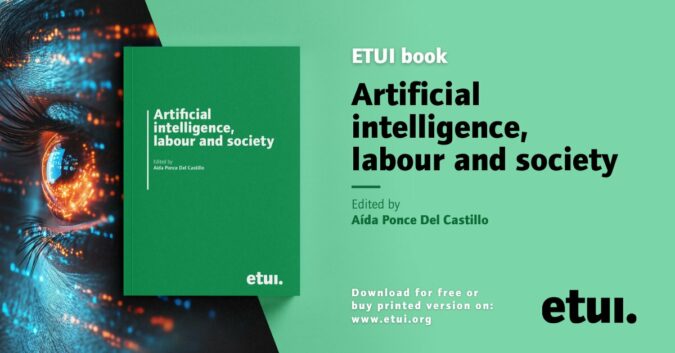In March 2024, the European Trade Union Institute (ETUI) in Brussels published the book titled Artificial Intelligence, Labour and Society, offering an in-depth analysis of the effects of artificial intelligence on the labor market and society at large. Edited by Aida Ponce Del Castillo, the book features my essay on to the growing discussion on the ethical dimensions of AI.
The book Artificial Intelligence, Labour and Society highlights the rapid and pervasive expansion of AI technologies, underscoring the end of an era where AI was synonymous with robots and complex algorithms meant only for the technically savvy. Today, AI has become an integral part of our workplaces and daily lives, prompting a significant paradigm shift with deep and often hidden implications for the labor market. The chapters contained in the book bring together reflections from high-level academics and research activists worldwide, adopting a multidisciplinary approach that embraces diverse geographical and cultural perspectives.

Artificial Intelligence, Labour and Society urges readers to move beyond narrow disciplinary perspectives and consider the comprehensive impact of AI on the labor market, working conditions, and broader societal dynamics. It highlights the need for preventive and precautionary measures in the critical thinking approach towards AI, examining the power dynamics of technological evolution and governance, and exploring AI’s relationship with the environment. By presenting a range of novel and diverse academic viewpoints on the challenges posed by AI, the book serves as a clarion call for a more ethical, inclusive, and sustainable approach to the development and deployment of artificial intelligence technologies.
My chapter introduces the concept of ‘End-to-end’ ethical AI, and argues that a value-driven technology requires consideration beyond just the end product or service—it necessitates an examination of the conditions under which data, tools, and equipment are produced, highlighting the importance of respecting workers’ rights and minimizing environmental impacts. This approach to AI ethics is akin to how some consumer product companies operate, ensuring their products do not discriminate while striving to maintain ethical production processes.
The text underscores the importance of acknowledging the human, social, political, and economic contexts surrounding today’s AI technologies. It stresses the need to protect the rights of remote AI workers, who must be empowered to resist unsuitable conditions, protest against ethically problematic technologies, and refuse to contribute to their development if necessary. This shift in focus from promoting the interests of AI producers and owners to enhancing the ethical agency of producers-workers is crucial for establishing a more foundational approach to AI ethics.
